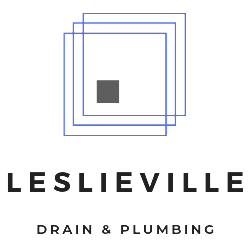Understanding the Different Types of Plumbing Pipes and Their Uses

Plumbing is an integral part of any residential or commercial building, and choosing the right type of pipes is crucial for any plumbing system. At Leslieville Drain & Plumbing, we handle all types of plumbing issues with a team of experienced professionals who are well-versed in the variety of pipes available and their specific uses. Let’s dive into the common types of plumbing pipes you might encounter and what they are most suitable for.
Types of Plumbing Pipes
PVC Pipes (Polyvinyl Chloride)
– Uses: Widely used for residential and commercial sewage systems, including drain, waste, and vent pipes.
– Advantages: PVC pipes are lightweight, easy to work with, have a high resistance to corrosion and chemicals, and their smooth interior walls promote strong water flow.
– Considerations: PVC is not suitable for hot water, as it can only handle up to 140°F.
PEX Pipes (Cross-Linked Polyethylene)
– Uses: Ideal for indoor water supply lines. PEX is flexible and often used in retrofitting older homes as it can weave through walls easily.
– Advantages: Extremely versatile and easy to install, PEX is less likely to burst from freezing. It’s great for areas with acidic water and has a lower cost.
– Considerations: It cannot be used outdoors due to UV sensitivity, and some homeowners are concerned about potential contaminants.
Copper Pipes
– Uses: Suitable for both hot and cold water delivery, they are often utilized for main water lines and household supply lines.
– Advantages: Copper pipes are durable, recyclable, have a long lifespan, and can handle high water pressure.
– Considerations: They are more expensive and require soldering for installation. Additionally, in certain water pH conditions, they can corrode.
ABS Pipes (Acrylonitrile Butadiene Styrene)
– Uses: Similar to PVC, ABS is typically used for drain, waste, and vent lines.
– Advantages: Stronger than PVC, ABS also performs well in cold temperatures and is easy to install.
– Considerations: ABS can warp with exposure to direct sunlight, and it’s not as flexible as PVC.
Galvanized Steel Pipes
– Uses: Commonly found in older homes for water supply lines, though not widely used today because of their tendency to corrode over time.
– Advantages: They are quite strong and resistant to damage.
– Considerations: Inside rusting reduces water pressure and flow, and these pipes can leak at the joints.
Cast Iron Pipes
– Uses: Often found in municipal applications or in older homes, they’re used for sewer lines or as main water distribution pipes.
– Advantages: Very durable with a long lifespan, they also reduce sound transmission from liquid flows.
– Considerations: They are incredibly heavy and require increased support during installation, and they can corrode and rust internally.
Choosing the Right Pipes for Your Project
Selecting the right kind of plumbing pipe involves considering factors such as the purpose of the pipe, local building codes, the longevity you require, and, of course, your budget. At Leslieville Drain & Plumbing, we offer our expertise to ensure you make the most informed decision for your plumbing project.
From routine maintenance and sewer repairs to more specific plumbing challenges in Leslieville, Scarborough, and Richmond Hill, our licensed plumbers are equipped with more than a decade of experience to serve your plumbing needs, 24/7.
For help understanding which types of pipes to use in your home or business, or if you’re dealing with a plumbing issue that calls for professional assessment, call us at 647-697-7026. You can also visit us at 1238 Queen St E, Toronto, ON M4L 1C3, or schedule an appointment via info@leslievilleplumbing.ca. Our promise is timely, efficient, and affordable service, ensuring the smooth operation of your plumbing systems with industry-certified best practices.
